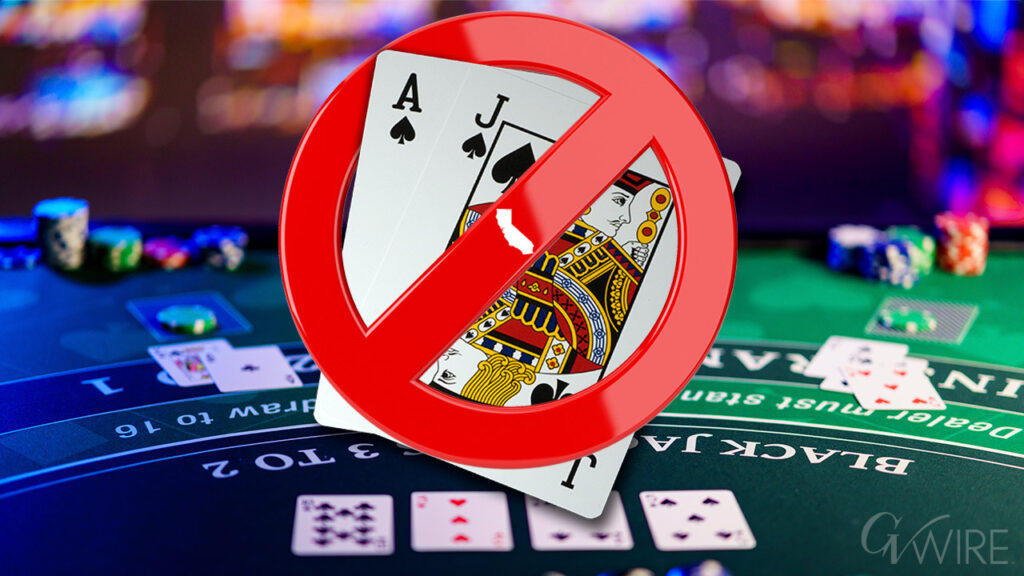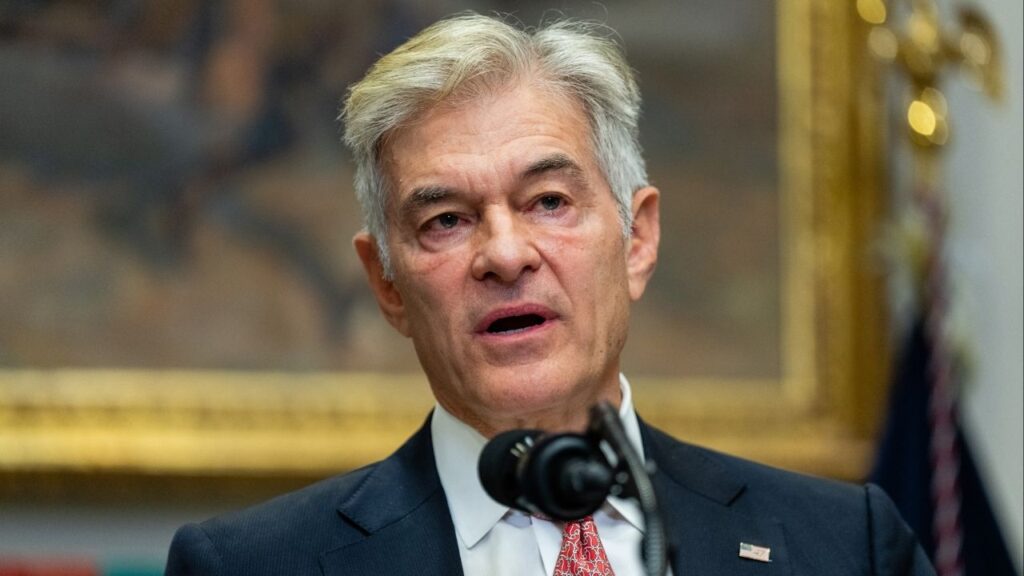Supporters at a campaign rally for former President Donald Trump at Trump National Doral, his golf resort in Doral, Fla., July 9, 2024. “I’ve been trying to think through the deeper roots of our current dysfunction with the help of a new book by James Davison Hunter titled “Democracy and Solidarity: On the Cultural Roots of America’s Political Crisis,” writes The New York Times columnist David Brooks. (Scott McIntyre/The New York Times)
Share
|
Getting your Trinity Audio player ready...
|
Opinion by David Brooks on July 11, 2024. Photo by Scott McIntyre.
There was an extraordinary story in Politico this week. A group of Democratic officials and union leaders told journalists that Donald Trump was competitive in New York state. In 2020, Joe Biden won New York by 23 points. But now, Democratic Manhattan Borough President Mark Levine said, “I truly believe we’re a battleground state now.”
If New York is anything remotely like a battleground, then Trump is going to win this election in a landslide. What is going on?

Opinion
The New York Times
Voters Believe Biden is Too Old
The proximate answer of course is that many voters think Biden is too old. But that doesn’t explain why Trump was ahead even before the debate. It doesn’t explain why Trump’s candidacy is still standing after Jan. 6. It doesn’t explain why America is on the verge of turning in an authoritarian direction.
I’ve been trying to think through the deeper roots of our current dysfunction with the help of a new book by James Davison Hunter titled “Democracy and Solidarity: On the Cultural Roots of America’s Political Crisis.” Hunter, a scholar at the University of Virginia, is (in my opinion) the nation’s leading cultural historian.
He reminds us that a nation’s political life rests upon cultural foundations. Each society has its own way of seeing the world, its own basic assumptions about what is right and wrong, its own vision of a better world that gives national life direction and purpose. Culture is the ocean of symbols and stories in which we swim.
Related Story: The Embattled Biden Campaign Tests Kamala Harris’ Strength vs. Trump
American Culture Formed Through Tensions of Values
American culture, Hunter argues, was formed within the tension between Enlightenment values and religious faith. America was founded at the high point of the Enlightenment, and according to Enlightenment ideas: a belief in individual reason, that social differences should be settled through deliberation and democracy, that a free society depends on neutral institutions like the electoral system or the courts, which will be fair to all involved.
But over the centuries many Americans have also believed that America has a covenantal relationship with God — from Puritan leaders like John Winthrop on down. The Bible gave generations of Americans a bedrock set of moral values, the conviction that we live within an objective moral order, the faith that the arc of history bends toward justice. Religious fervor drove many of our social movements, like abolitionism. Religious fervor explains why America has always had big arguments over things like Prohibition and abortion, which don’t seem to rile other nations as much. As late as 1958, according to a Gallup poll, only 18% of Americans said they would be willing to vote for an atheist for president.
Related Story: Republicans Are Gathering in Milwaukee to Nominate Donald Trump Again. ...
Each generation, Hunter continues, works out its own balance in the tension between Enlightenment liberty and moral authority. In the 20th century, for example, the philosopher John Dewey emerged as the great champion of Enlightenment values. He believed that religion had been discredited but that a public ethic could be built by human reason, on the basis of individual dignity and human rights. He had great faith in the power of education to train people to become moral citizens. (Dewey’s understanding of education remains influential in the United States.)
Niebuhr Thought This Was Naive
Theologian Reinhold Niebuhr thought this was naive. He believed that Dewey underestimated the human capacity for sin. He believed that you can’t use science to answer questions about life’s ultimate purpose and meaning. He dismissed the idea that with just a little more schooling, we would be able to educate people out of their racism and selfishness, or that secularism can address life’s deepest problems. “The religious ideal of forgiveness,” Niebuhr wrote, “is more profound and more difficult than the rational virtue of tolerance.”
Dewey and Niebuhr differed, but they both thought it was important to build a coherent moral order; they both believed there was a thing called the truth; they both believed that capitalism preyed on the vulnerable. In other words, across their differences they both operated within the cultural framework and tension that had long defined America.
And over the decades, most Americans lived with one ear attuned to the doctrine of Dewey and the other ear attuned to the doctrine of Niebuhr. If you want to see these two traditions within one person, look at Martin Luther King Jr. He used a Christian metaphysics to show how American democracy could live up to both Enlightenment and divine ideals.
Unfortunately, Hunter notes, this fruitful cultural tension died with King. Starting in the 1960s, America grew less religious. Those who remained religious were told to keep their faith to the private sphere. American public life became largely secular, especially among the highly educated classes, producing what the First Things editor Richard John Neuhaus called “the naked public square.” By 2020, 60% of Americans said they would vote for an atheist for president.
Related Story: A Trump Ally Is Training 75 Armed Citizens. Is That a Militia?
At the same time, science and reason failed to produce a substitute moral order that could hold the nation together. By 1981, in the famous first passage of his book “After Virtue,” philosopher Alasdair Macintyre argued that we had inherited fragments of moral ideas, not a coherent moral system to give form to a communal life, not a solid set of moral foundations to use to settle disputes. Moral reasoning, he wrote, had been reduced to “emotivism.” If it feels right, do it. In 1987, Allan Bloom released his megaselling “The Closing of the American Mind,” arguing that moral relativism had become the dominant ethos of the era.
The Idea of Identity Politics
Was there anything that would fill this void of meaning? Was there anything that could give people a shared sense of right and wrong, a sense of purpose?
It turns out there was: identity politics. People on the right and the left began to identify themselves within a particular kind of moral story. This is the story in which my political group is the victim of oppression and other groups are the oppressors. For people who feel they are floating in a moral and social vacuum, this story provides a moral landscape — there are those bad guys over there and us good guys over here. The story provides a sense of belonging. It provides social recognition. By expressing my rage, I will earn your attention and respect.
In public discourse, identity politics is more associated with the left. Progressivism used to be oriented around how to make capitalism just; but now in its upper-middle-class form, it’s oriented around proper esteem for and inclusion of different identity groups.
But as Hunter notes, Donald Trump practices identity politics just as much as any progressive. He tells the story of how small-town, less-educated Christians are being oppressed by elites. He alone is their retribution. That story resonates with a lot of people. In the 1950s, Billy Graham assumed that his faith was central to American life. By the 2020s his son Franklin considered himself a warrior under siege in an anti-Christian culture.
The problem with this form of all-explaining identity politics is that it undermines democracy. If others are evil and out to get us, then persuasion is for suckers. If our beliefs are defined by our identities and not individual reason and personal experience, then different Americans are living in different universes and there is no point in trying to engage in deliberative democracy. You just have to crush them. You have to grab power and control of the institutions and shove your answers down everybody else’s throats.
In this climate, Hunter argues, “the authoritarian impulse becomes impossible to restrain.” Authoritarianism imposes a social vision by force. If you can’t have social solidarity organically from the ground up, then you can impose it from top down using the power of the state. This is the menace of Trumpism. If you read my recent interview with Steve Bannon, you’ll see that he talks like a character straight out of Hunter’s book.
But in this world, in which politics is seen as a form of total war, Biden looks obsolete. In a nihilistic pseudo-authoritarian world, he’s still one of those old-fashioned liberals who reveres the Constitution and his Catholicism. The ideals that animate him and that he uses to give poetry and lift to his speeches fail to inspire millions of American voters. A plurality of voters believe that Biden’s age is a bigger problem than Trump’s authoritarianism because they just don’t see the latter as that big a problem.
The core question in Hunter’s book is: Can you have an Enlightenment political system atop a post-Enlightenment culture? I’d say the answer to that question is: Over the long term, no.
The task, then, is to build a new cultural consensus that is democratic but also morally coherent. My guess, and it is only a guess, is that this work of cultural repair will be done by religious progressives, by a new generation of leaders who will build a modern social gospel around love of neighbor and hospitality for the marginalized.
But the work of building that culture will take decades. Until then, we, as a democracy, are on thin ice.
–
This article originally appeared in The New York Times.
c.2024 The New York Times Company
RELATED TOPICS:
Categories



















